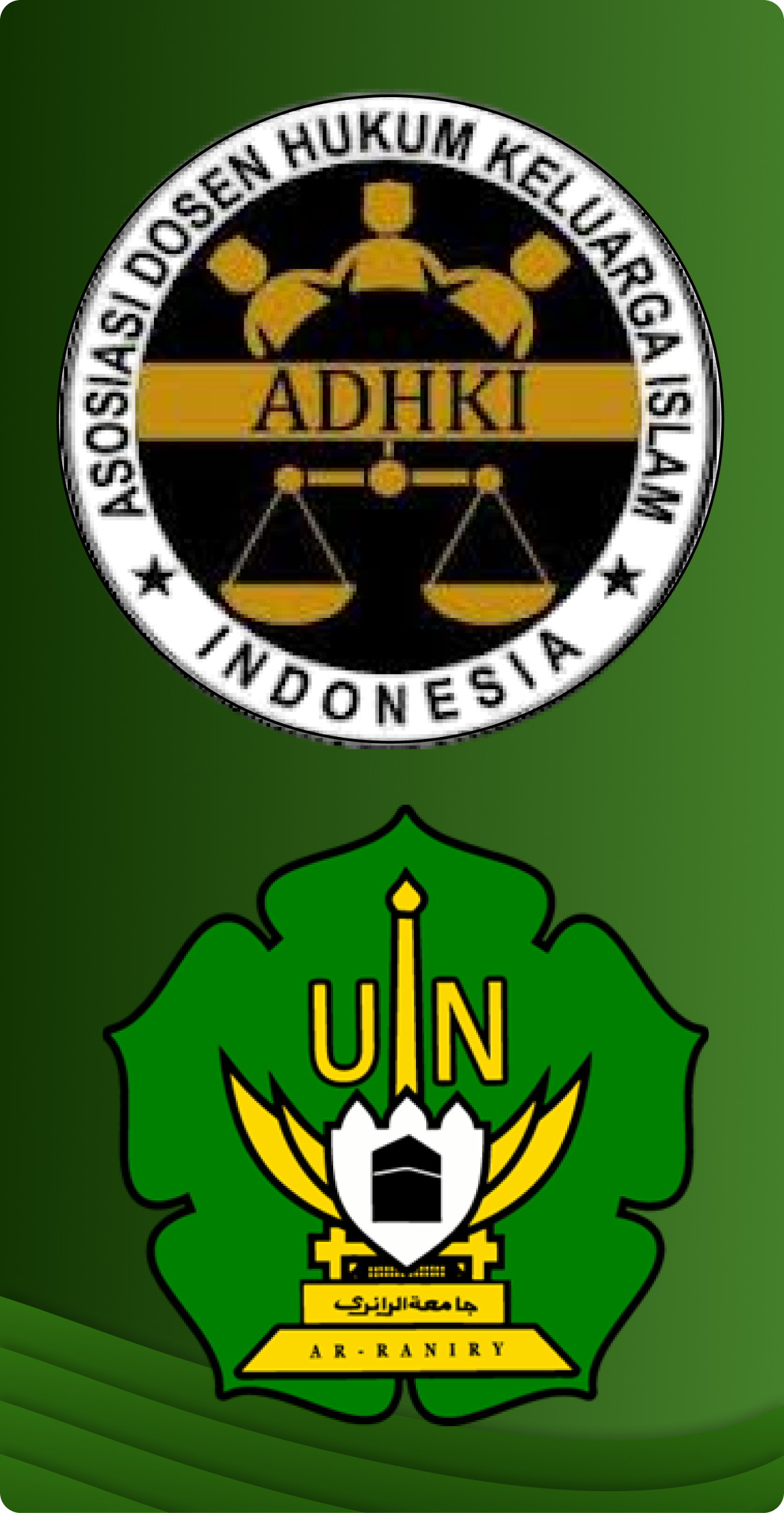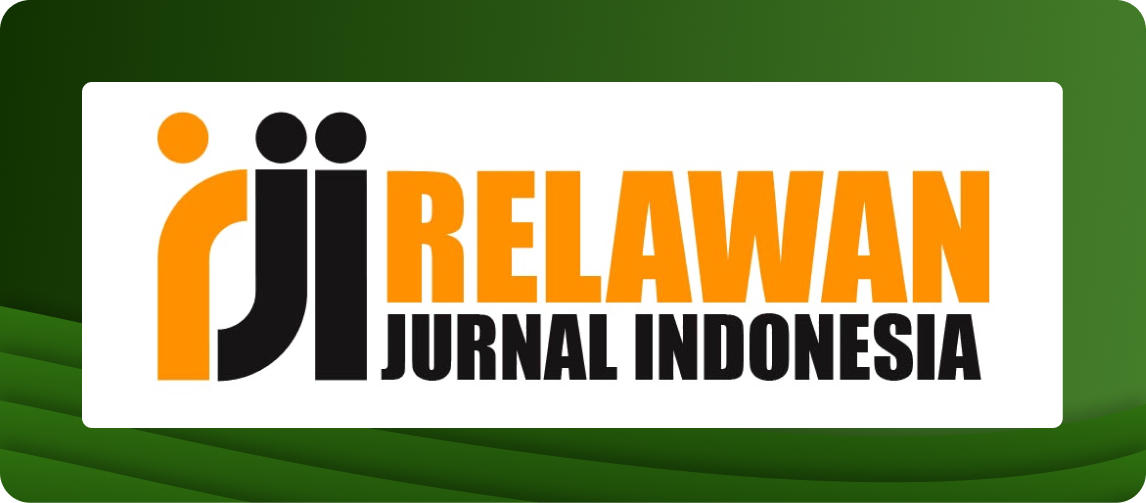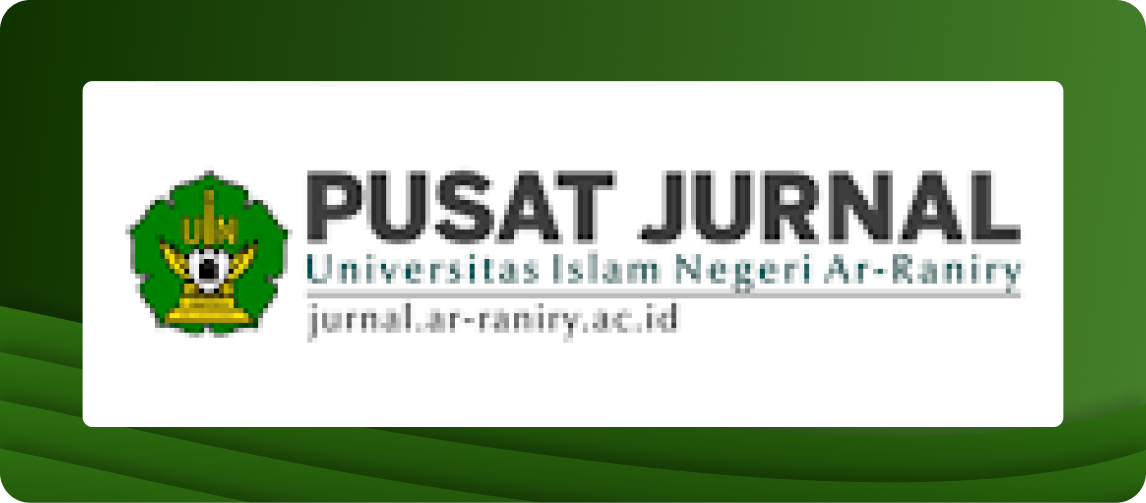Community, Family and Animal Conservation Sustainability in the Perspective of Normative Law and Maqasid Sharia
DOI:
https://doi.org/10.22373/ujhk.v7i2.25085Keywords:
Community, Family, Animal Conservation, Legislation, and Maqasid ShariaAbstract
Animal conservation aims to preserve and breed animals to achieve the benefits of a sustainable natural ecosystemincluding community and family. One of the efforts made by the government to provide information and knowledge to the public in an attempt to minimize wildlife hunting is through the legal protection of animals, as stated in Law Number 5 of 1990 concerning the Conservation of Biological Resources and Their Ecosystems, and Government Regulation Number 13 of 1994 concerning the Hunting of Game Animals. The research method used is juridical-normative with a legislative and socio-legal approach. Then, it is linked to the policy of animal conservation, which is examined from the Maqasid Shariah perspective. The research results provided recommendations to the government in creating legislation or decision policies oriented to animals that are not yet rare. These recommendations include educating the public about rare and non-rare animal species, setting educational targets, supporting conservation efforts, and establishing animal breeding programs. Furthermore, from the perspective of Maqasid Sharia, the conservation of these animals falls under the category of daruriyah, which means that the preservation and protection of wildlife are essential for the sustainability and keeping of the Hifz al-Mal element (natural ecosystem wealth).
References
Journal and Books
Abidin, Ratnasari Fajariyah. “Aspek Yuridis Renegosiasi Kontrak Karya Di Indonesia (Studi Kontrak Karya Antara Pemerintah Republik Indonesia Dengan PT Freeport Indonesia)”. Al-Risalah: Forum Kajian Hukum dan Sosial Kemasyarakatan 11, no. 01 (June 24, 2011): 19–42. https://shariajournals-uinjambi.ac.id/index.php/al-risalah/article/view/473.
Aristides, Yoshua, Agus Purnomo, and Adji Samekto. “Analisis Rantai Distribusi Komoditas Ikan Bandeng.” Diponegoro Law Journal 5, no. 4 (2016): 1–17.
Asikin, Amiruddin dan Zainal. Pengantar Metode Penelitian Hukum. Jakarta: Raja Grafindo, 2012.
Asriyana Labiro. “Analisis Hukum Perburuan Satwa Langka Maleo Senkawor Sebagai Endemik Di Daerah Luwuk Banggai.” Tadulako Master Law Journal 6, no. 2 (2022): 206.
Dewan Perwakilan Rakyat. “Undang-Undang Nomor 5 Tahun 1990,” 1990.
Efendi, M Zuhri, Tarmizi, Hadi Ainal, and Yunanda Rizky. “Animal Protection in the Perspective of Positive Law and Islamic Law: A Study of Elephant-Human Conflict in Aceh, Indonesia.” Samarah: Jurnal Hukum Keluarga & Hukum Islam 7, no. 1 (2023): 192.
Fachrurazi. “Fatwa Satwa (Kajian Fiqh Dan Hukum Positif Tentang Perburuan Satwa).” Jurnal El-Maslahah 13, no. 1 (2017).
Faizin, Darul. “Konstribusi Muhammad Aṭ-Ṭāhir Ibnu ‘Āsyūr Terhadap Maqāṣid Asy-Syarī’Ah.” El-Mashlahah 11, no. 1 (2021): 1–12. https://doi.org/10.23971/elma.v11i1.2067.
Guntur, Wildanu S, Sabar Slamet, and Tindak Pidana. “Kajian Kriminologi Perdagangan Ilegal Satwa Liar” 8, no. 2 (1999): 176–86.
Hanif, Fathi. “Upaya Perlindungan Satwa Liar Indonesia Melalui Instrumen Hukum Dan Perundang-Undangan.” Jurnal Hukum Lingkungan Indonesia 2, no. 2 (2015): 29–48.
———. “Upaya Perlindungan Satwa Liar Indonesia Melalui Instrumen Hukum Dan Perundang-Undangan.” Jurnal Hukum Lingkungan Indonesia 2, no. 2 (2021): 30. https://doi.org/https://doi.org/10.38011/jhli.v2i2.24.
Harnowo, Tri, and Fachry Hasani Habib. “Islamic Law and Environment Issues: Indonesian Ulama Council’s Fatwas on Climate Change.” Ahkam: Jurnal Ilmu Syariah 24, no. 1 (2024): 101–18. https://doi.org/10.15408/ajis.v24i1.34161.
Izzudin Ibn Abd as-Salam. Qawaid Ahkam Fi Masalih Al-Anam. Beirut: Dar al-Kutb al-Ilmiyah, 2010.
Jamaludin, Mohd Hafiz, Ahmad Hidayat Buang, and Arip Purkon. “Talfīq as A Method for Legal Solutions in Contemporary Islamic Law.” Ahkam: Jurnal Ilmu Syariah 24, no. 1 (2024): 55–66. https://doi.org/10.15408/ajis.v24i1.33608.
Karim, Nurdin, La Hadisi, Ramli, Maesaroh Lubis, and Laode Anhusadar. “Environmental Conservation of Coral Reefs in the Wakatobi Region Based on Islamic Education and Customary Law Approaches.” Samarah 8, no. 3 (2024): 1547–65. https://doi.org/10.22373/sjhk.v8i3.24067.
Kementerian Lingkungan Hidup dan Kehutanan. “Peraturan Menteri Lingkungan Hidup Dan Kehutanan Nomor P.8/Menlhk/Setjen/OTL.0/1/2016 Tentang Organisasi Dan Tata Kerja Unit Pelaksanan Teknis Konservasi Sumber Daya Alam.” Berita Negara 2016 No. 205, 2016, 1–34.
Latif, Muhaemin., Darmawati Hanafi, Rahmi Damis, and Abdi Goncing. “Environmental Theology and Its Relevance to Islamic Law: Perception of Makassar Muslim Scholars, Indonesia.” Samarah 7, no. 3 (2023): 1734–56. https://doi.org/10.22373/sjhk.v7i3.18905.
Mardiana. “Kajian Tafsir Tematik Tentang Pelestarian Lingkungan Hidup.” Al-Fikr 1, no. 17 (2013): 2013.
Maulana, Diky Faqih, and Abdul Rozak. “Istihsan As a Finding Method of Progressive Islamic Law in the Industrial Revolution Era 4.0.” El-Mashlahah 11, no. 2 (2021): 127–45. https://doi.org/10.23971/elma.v11i2.2981.
Muala, Asyharul. 2020. “Repositioning of Islamic Economics in the Era of Globalization from the Maqāṣid Syarī’ah Perspective”. Journal of Islamic Law 1 (1), 45-63. https://doi.org/10.24260/jil.v1i1.17.
Mufid, Moh. “Fikih Konservasi Laut: Relevansi Fiqh al-Bi’ah di Wilayah Pesisir Lamongan”. Al-Manahij: Jurnal Kajian Hukum Islam, 12 no. 1, (2018): 1–16. https://doi.org/10.24090/mnh.v12i1.1356.
Mufid, Moh. “Green Fatwas in Bahtsul Masail: Nahdlatul Ulamas Response to the Discourse of Environmental Crisis in Indonesia.” Al-Ihkam: Jurnal Hukum Dan Pranata Sosial 15, no. 2 (2020): 173–200. https://doi.org/10.19105/al-lhkam.v15i2.3956.
MUI. “Fatwa MUI No. 4 Tahun 2014, Tentang Pelestarian Satwa Langka.” In Fatwa MUI Nomor 4 Tahun 2014, 12, 2014.
Munib, Rafik Patrajaya, Reza Noor Ihsan, and Muhammad Amin. “Conservation Enviromental Sustainability in The Perspektive Of Islamic Legal Philosophy.” Samarah: Jurnal Hukum Keluarga & Hukum Islam 6, no. 2 (2022): 49.
Nasrulloh. “Maqasid Shari’ah sebagai Pendekatan Sistem dalam Hukum Islam”. De Jure:Jurnal hukum dan Syariah 2, No. 2 (30 December 2020): 101-109. https://doi.org/10.18860/j-fsh.v2i2.2970.
Padang, Krismanko. “Penguatan Kebijakan Pencegahan Perdagangan Dan Peredaran Satwa Liar Di Indonesia Berbasis Daring.” 2022.
PERATURAN PEMERINTAH REPUBLIK INDONESIA NOMOR 7 TAHUN 1999 TENTANG, PENGAWETAN JENIS TUMBUHAN DAN SATWA, and PRESIDEN. “Peraturan Pemerintah Republik Indonesia Nomor 7 Tahun 1999 Tentang Pengawetan Jenis Tumbuhan Dan Satwa Presiden,” no. 7 (2011): 1–19.
Permatasari, N. “Analisis Kebijakan Pemerintah Dalam Perlindungan Satwa Langka Di Indonesia.” Ajudikasi: Jurnal Ilmu Hukum 5 (2021): 83–98.
Purnomo, Agus., Umi Sumbulah, Nor Salam, and Hikam Hulwanullah. “Characteristics of Hate Speech and Freedom of Expression in the Perspective of Maqāṣid Al-Sharī’ah.” Juris: Jurnal Ilmiah Syariah 22, no. 1 (2023): 171–83. https://doi.org/10.31958/juris.v22i1.9446.
Putri, Liza Diniarizky., Catur Nugroho, Abdul Malik, and M. Nastain. “Developing Ecological Piety in Pesantren: The Kyai’s Cognition and the Practice of Living Fiqh Al-Bī’ah in Banten.” Ijtihad: Jurnal Wacana Hukum Islam Dan Kemanusiaan 23, no. 2 (2023): 235–59. https://doi.org/10.18326/ijtihad.v23i2.235-259.
Reflita. “Eksploitasi Alam Dan Perusakan Lingkungan (Istinbath Hukum Ayat-Ayat Lingkungan).” Subtantia 17, no. 2 (2015): 150.
Rosyid, Moh., dan Lina Kushidayati. “Anticipating Disaster: The Urf Perspektive of Rebo Wekasan Ceremony in Kudus, Central Java.” Al-Ihkam: Jurnal Hukum & Pranata Sosial 1, no. 17 (2022): 105.
Rosyid, Moh., and Lina Kushidayati. “Anticipating Disaster: The ‘Urf Perspective of Rebo Wekasan Ceremony in Kudus, Central Java.” Al-Ihkam: Jurnal Hukum Dan Pranata Sosial 17, no. 1 (2022): 91–112. https://doi.org/10.19105/AL-LHKAM.V17I1.5705.
Sandriansyah. “Trade in-Game Meat in Jagaraga Village, West Lampung from an Islamic Law Perspective”. Al-Ahkam 30, no. 2 (2020): 179-194. https://doi.org/10.21580/ahkam.2020.30.2.6002.
Safrizal. “Perlindungan Hukum Terhadap Satwa Liar (Studi Konflik Gajah Dengan Manusia Di Aceh Timur) Menurut Hukum Pidana Islam.” Universitas Islam Negeri Ar-Raniry, 2019.
Sukarni, Hafini bin Mahmud. “Development and Concept of Environmental Fiqh in the Works of Banjar Scholars: Historical and Thought Analysis”. Syariah: Jurnal Pemikiran Islam 24, No. 1 (2024): 174-188, https://doi.org/10.18592/sjhp.v24i1.12906.
Suryani. “Pengarusutamaan Hifz Al-‘Alam Sebagai Bagian Dari Maqasid Syariah.” At-Tahrir 17, no. 2 (2017): 358–59.
Taufiki, Muhammad dan Rokani Darsah, Mahmud Ridha. “The Use of Maxims (Al-Qawaid Al-Usuliyyahh Wa Al-Fiqhiyyah) in Legal Argumentation of Sharia Economic Court Decisions in Indonesia.” Al-Ihkam: Jurnal Hukum & Pranata Sosial 17, no. 1 (2022): 179.
Taufiqurohman, and Fauziah Nelli. “The Evaluation Of Maqasid Asy-Syariah on Discourses Og the Islamic Family Law” 5, no. 2 (2023): 89–95. https://doi.org/10.22373/ujhk.v6i1.13035.
Tim Badan Litbang dan Diklat Kementerian Agama RI. Tafsir Al-Quran Tematik. Jakarta: Lajnah Pentashihan Mushaf Al-Quran, n.d.
Utawa, R.Wahyu Agung. “Tinjauan Maqasid Syariah Dan Fiqh Bi’ah Dalam Green Economy.” Jurnal Ekonomi Islam 10, no. 2 (2019): 249–50.
Zakariya, Luqman. Islamic Legal Maxims (Al-Qawaid Fiqhiyya): Historical Development, Concept and Content. Nijhoff: Brill, 2015.
Downloads
Published
Issue
Section
License
Authors who publish in El-Usrah: Jurnal Hukum Keluarga agree to the following terms:
Authors retain copyright and grant the journal right of first publication with the work simultaneously licensed Attribution-ShareAlike 4.0 International (CC BY-SA 4.0) that allows others to share the work with an acknowledgment of the work's authorship and initial publication in this journal.
Authors are able to enter into separate, additional contractual arrangements for the non-exclusive distribution of the journal's published version of the work (e.g., post it to an institutional repository or publish it in a book), with an acknowledgment of its initial publication in this journal.
Authors are permitted and encouraged to post their work online (e.g., in institutional repositories or on their website) prior to and during the submission process, as it can lead to productive exchanges, as well as earlier and greater citation of published work. (See The Effect of Open Acces)

















